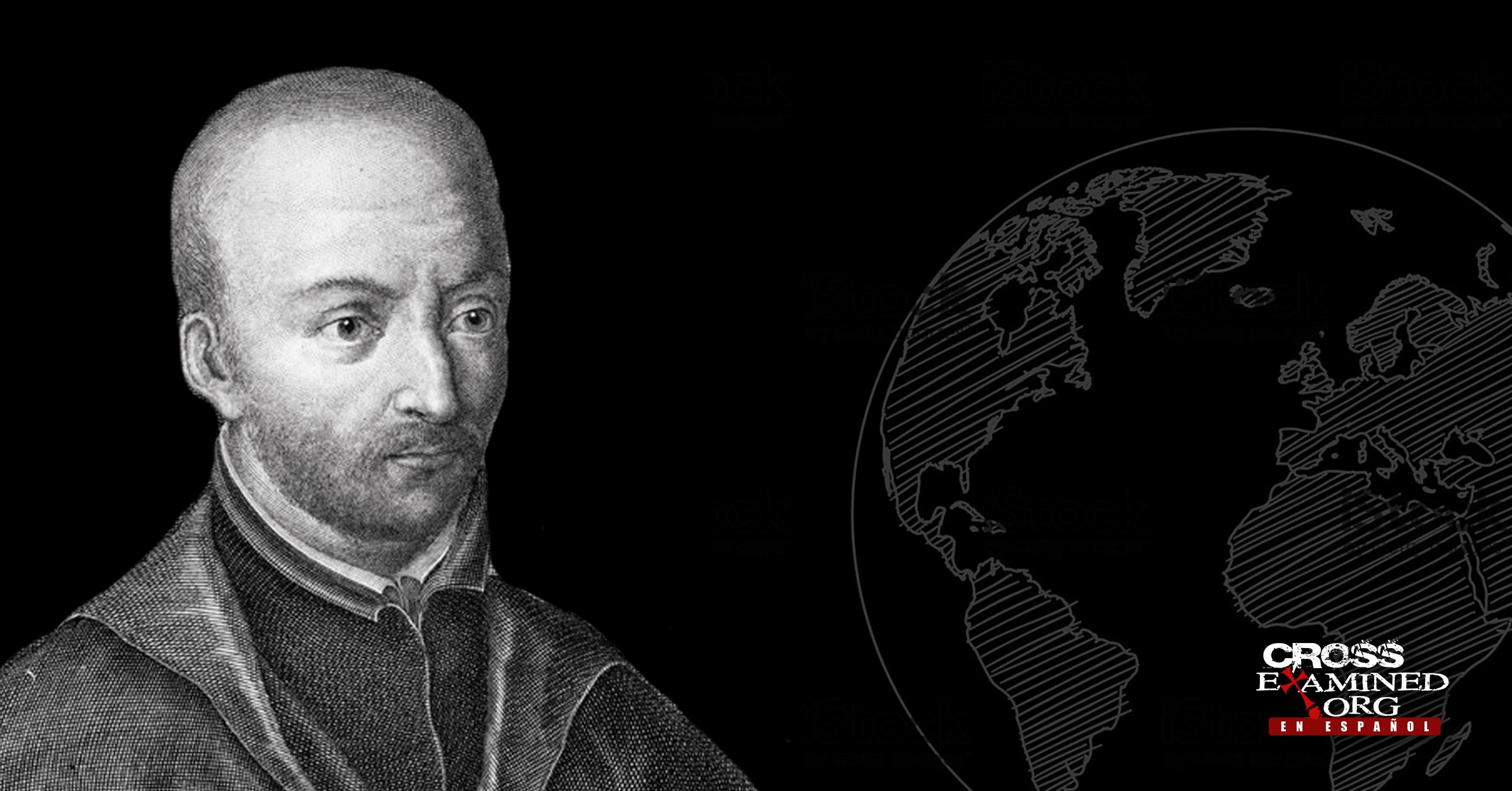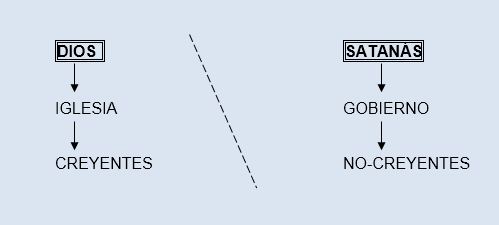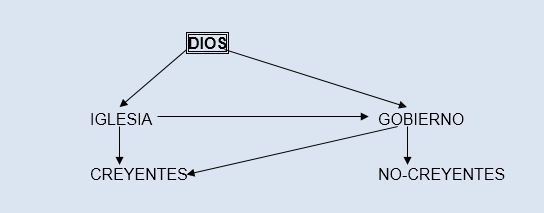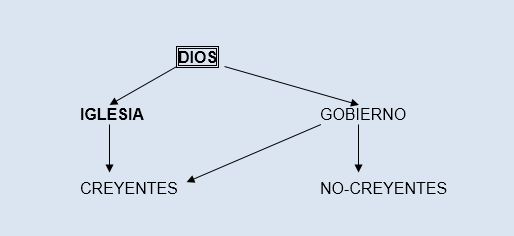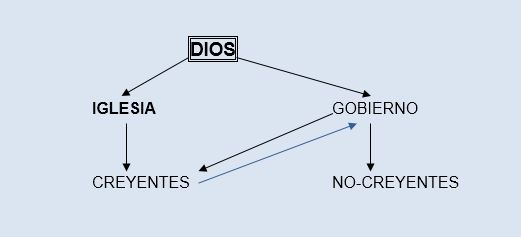Much has been written about the biblical illiteracy of teenage believers and the flight of young people from the Church. Many have observed this trend, and I too have seen it anecdotally as a youth pastor (and shamefully, I contributed to the trend for some time before changing course). Some Christian writers and observers deny the flight of young people outright, but the mounting statistics should alarm us enough as Church leaders to do something about it. My hope in this post is simply to consolidate some of the research so that you can decide for yourself. I will organize recent findings in a way that illuminates the problem:
Research related to the spiritual life of adolescents:
Soul Searching : The Religious and Spiritual Lives of American Teenagers*
Christian Smith and Melinda Lundquist Denton, Oxford University Press, 2005
What we find in the books: Most teenagers are incredibly inarticulate about their faith, religious beliefs and practices, and its place in their lives. The de facto dominant religion among contemporary American teenagers* is what they call “Moralistic Therapeutic Deism”: There is a God who created and orders the world and watches over human life on earth; God wants people to be good, nice, and fair to one another, as taught in the Bible and most world religions; the central goal of life is to be happy and feel good about oneself; God need not be particularly involved in one’s life except when God is needed to solve a problem; and good people go to heaven when they die.
*Given the technological and cultural state, this is today a global reality that encapsulates Latin American adolescents alike (Jorge Gil)
Almost Christian: What the Faith of Our Teens Is Telling the American Church
Kenda Creasy Dean, Oxford University Press, 2010
What we find in the books: Dean states what Soul Search calls ‘Moralistic Therapeutic Deism’ “If teenagers lack articulate faith, it may be because the faith we show them is too weak to merit much attention in conversations.”
The Teen Guide to Global Action: How to Connect with Others (Near and Far) to Create Social Change
Barbara A. Lewis, Free Spirit Publishing, 2007
What we find in the books: More teens are embracing a nebulous belief about God. However, there has been an “explosion” in youth service since 1995, which Lewis attributes to more schools emphasizing community service.
The State of Theology
Ligonier Ministries and Lifeway Research (2015)
Study Findings: In this survey of theological beliefs, researchers asked self-professed Christians to respond to a series of statements related to classical and historic Christian doctrine. In every response offered regarding these theological beliefs, young people between the ages of 18 and 34 consistently held heretical views at a higher rate than older respondents. Young people who identify as Christian are much more likely to hold non-Christian views.
Research related to the attitude of university professors:
Politics and career advancement among university professors
Stanley Rothman, S. Robert Lichter, Neil Nevitte (2005)
Study findings: “Nearly three-quarters” (72%) of faculty members describe themselves as politically liberal, according to 1999 data from the North American Academic Studies Survey (NAASS), up from 39% in a 1984 survey by the Carnegie Foundation for the Advancement of Teaching.
How religious are American college professors?
Neil Gross, Solon Simmons (2006)
Study findings: About 25% of college professors are atheists or agnostics (5-7% of the general population is atheist or agnostic). Only 6% of college professors said the Bible is “the true word of God.” 51% described it as “an ancient book of fables, legends, history, and moral precepts.” 75% believe religion does not belong in public schools.
Religious beliefs and behaviors of university professors
The Institute for Jewish & Community Research Review – Personal (2007)
Study Findings: The study revealed several findings related to teachers’ political and religious views, including the following key findings:
“Most teachers believe in God, but atheism is significantly more prevalent among teachers than among the general public.
The proportion of professors who self-identify as atheists is more than five times greater than the proportion of people who self-identify as atheists in the general public.
Teachers are much less religious than the general public
The American public** is much more likely than teachers to say that religion is very important in their daily lives and to attend religious services more frequently.
Teachers perceive themselves as warm toward most religious groups, but cold toward evangelicals and Mormons
Teachers have positive feelings towards Jews, Buddhists and atheists.
Teachers feel very unfavorable towards evangelical Christians
This is the only religious group about which the majority of non-evangelical faculty have negative feelings.
Professors are almost unanimous in their belief that evangelical (fundamentalist) Christians should keep their religious beliefs out of politics.
Professors who are secular/liberal are more likely to favor separation of religion and government, and those who are religious and conservative are more likely to advocate a closer connection between religion and government.
Although professors generally oppose religion in the public sphere, many support the idea that Muslims should express their religious beliefs in politics.
“Teachers are much less likely to support evangelical Christians who express their beliefs in American politics.”
* *Given the technological and cultural state, this is today a global reality that encapsulates the Latin American public equally (Jorge Gil)
Compromising scholarships: religious and political bias in American higher education
George Yancey (2011)
What we found in the books: “Conservative religious scholarship is at a distinct disadvantage in our institutions of learning, threatening the free exchange of ideas to which our institutions aspire and leaving much scientific inquiry unexplored.”
Research related to the decline of the Christian population in general
American Religious Identification Survey
Barry A. Kosmin, Egon Mayer, and Ariela Keysar (2001)
Study Findings: The number of people who identify as Christian has dropped from 85% in 1990 to 76% in 2008. About 52% of American adults identify as Protestant or other non-Catholic Christian denominations, according to their self-reported data. That’s down from 60% in 1990.
The Changing Religious Landscape of the United States**
Pew Research Center (2015)
Study findings: “The percentage of adults (ages 18 and older) who describe themselves as Christian has declined by nearly eight percentage points in just seven years, from 78.4% in a similarly massive Pew Research survey in 2007 to 70.6% in 2014. Over the same period, the percentage of Americans who are religiously unaffiliated — describing themselves as atheist, agnostic or “nothing in particular” — has risen more than six points, from 16.1% to 22.8%.”
Gallup Religious Identification Survey
Gallup Daily Tracker
Study Findings: While the number of Americans** who identify as Christian remains high (75%), it has dropped 5% since 2008.
Five key findings about religion in the United States**
Gallup National Poll (2016)
Study Findings: This national survey of Americans’ religious affiliation revealed the following (among other findings):
The United States remains a majority Christian nation, though less so than in the past. 74% of Americans identify as Christian, only 5% identify as affiliated with a non-Christian religion. When the last survey was conducted in 2008, 80% of Americans identified themselves as Christian.
The trend away from formal religion continues. About 21% of Americans say they are atheist, agnostic or have no religious affiliation. This represents an increase of 6% since 2008.
Americans continue to say that religion is losing its influence in American society. 72% of Americans say that religion is losing its influence in American life.
The persistent and exceptional intensity of religion: A response to recent research
Study of Sociological Science (2017)
Study Findings: This study, which examined the General Social Surveys from 1989 to 2016, found the following:
The number of people who say they are strongly affiliated with a religion is a minority, but it does not seem to have changed much between 1990 and 2015.
Less than 40% of Americans say they have strong religious affiliations. Those who say they are not strongly affiliated are leaving the church, dropping from about 55% in 1990 to about 42% in 2015. Those who say they are not affiliated with any religion have gone from 8% of the population to about 22% over the same period.
Only about 8% of the population attends church several times a week. The number of people who said they attended “sometimes” has dropped from about 79% to 69% between 1990 and 2015. Those who never attend church have increased from 14% to nearly 25% in the same time period.
About 33% of the population described the Bible as the “Literal Word of God.” The number of people who describe the Bible as “inspired, but not literal” has decreased from about 53% to 47% between 1990 and 2015. The number of people who describe the Bible as a “Book of Fables” has increased from about 15% to 21% during that time.
The number of people who identify as “evangelical” has remained somewhat stable over this period, at around 29%. The number of people who identify with a “non-evangelical” affiliation has dropped from about 66% to 51%. The number of people who say they have no religious affiliation has increased from about 8% to 23% over this same time period.
Investigation into the escape of young people from the Church
Why Christian Boys Abandon the Faith
Tom Bisset, Discovery House Publications (1997)
Book Findings: In this very early study, Tom Bisset interviewed people and asked them when, why, and how they left their faith. He identified four major reasons:
They left because they had troubling and unanswered questions about faith.
They left because their faith was not “working” for them.
They left because they allowed other things to take priority.
They left because they never owned their faith.
Southern Baptist Convention Facts
Pinkney, T.C., Remarks to the Executive Committee of the Southern Baptist Convention, Nashville, Tennessee (2001)
Study Findings: Data from the Southern Baptist Convention indicates that they are currently losing 70-88% of their youth after their first year of college. 70% of teens who participate in church youth groups stop attending church within the first two years of their high school graduation.
“The cycle of religiosity”
Gallup Poll Study (2002)
Study Findings: Results indicate that teens are most religious during their early teen years, and that religiosity begins to decline as they approach adulthood. Sixty-three percent of 13- to 15-year-olds responded “very important,” compared with 52 percent of 16- to 17-year-olds. Church attendance also declines during adolescence and young adulthood and begins to increase as adults age. Fifty-four percent of 13- to 15-year-olds reported attending church in the past seven days, as did 51 percent of 16- to 17-year-olds. The figure drops to 32 percent among 18- to 29-year-olds, but rises again to 44 percent among 50- to 64-year-olds and 60 percent among 75-year-olds and older. Sixty-nine percent of 13- to 15-year-olds say they are members of a church or synagogue, compared with 59% of 16- to 17-year-olds, 60% of 18- to 29-year-olds, 72% of 50- to 64-year-olds, and 80% of those 75 and older.
The Family Life Council of the Southern Baptist Convention
Report of the Southern Baptist Council on Family Life to the Annual Meeting of the Southern Baptist Convention (2002)
Study Findings: 88% of Children in Evangelical Homes Leave the Church by Age 18
Revolution
George Barna, Tyndale House Publications, Carol Stream, IL (2005)
What we find in the books: If current trends in the belief systems and practices of the younger generation continue, in ten years church attendance will be half of what it is today.
Soul Searching: The Religious and Spiritual Lives of American Teenagers
Christian Smith and Melinda Lundquist Denton, Oxford University Press (2005)
What we found in the books: Students leave faith behind primarily because of intellectual doubt and skepticism (page 89). “Why did you turn away from the faith you were raised in?” This was an open-ended question—there were no multiple-choice answers. 32% said they left faith behind because of intellectual skepticism or doubt. (“It didn’t make sense anymore.” “Some things are too crazy for me to believe.” “I think scientifically and there’s no real proof.” “Too many questions that can’t be answered.”)
“Most twenty-somethings put Christianity on the shelf…”
Barna Studio (2006)
Study Findings: Most twentysomethings—61% of today’s young adults—had attended church at some point in their teens but are now spiritually disinterested.
The last Christian generation
Josh McDowell, David H. Bellis, Green Key Books (2006)
What we found in the books: 63% of Christian teens do not believe Jesus is the Son of the one true God. 51% do not believe Jesus rose from the dead. 68% do not believe the Holy Spirit is a real entity. Only 33% of church-going teens have said the church will play a role in their lives when they leave home.
Assemblies of God Study
Dayton A. Kingsriter (2007)
Study Findings: At least half and possibly more than two-thirds of Christian youth will fall away from the Christian faith while attending a non-Christian college or university. Between 50% and 66.7% of Assemblies of God youth who attend a non-Christian public or private college will have left the faith four years after entering college.
LifeWay Research Study
LifeWay Ministry Research and Development (2007)
Study Findings: 70% will leave the faith in college. Only 35% eventually return. 7 in 10 Protestants ages 18 to 30 — both evangelical and mainline — who went to church regularly in high school said they stopped attending school by age 23. 34% of respondents said they had not returned, even sporadically, by age 30. This means that about one in four young Protestants has left the church. “The most frequent reason for leaving the church is, in fact, a self-imposed change, ‘I simply wanted a break from the church’ (27%). “The path to college and the workforce are also strong reasons for young people to leave the church: ‘I moved away from college and stopped attending church’ (25%) and ‘work responsibilities prevented me from attending’ (23%).”
Antichristian
David Kinnaman, director of the Barna Research Group, Baker Books; (2007)
What we found in the books: Christians in their twenties are “significantly less likely to believe that a person’s faith in God is meant to be developed by involvement in a local church. This life stage of spiritual disinterest is not going away.”
Rethink: Is Student Ministry Working?
Steve Wright, InQuest Ministries, Inc. (2007)
What we found in the books: 63% do not believe that Jesus is the Son of the one true God. 58% believe that all religions teach equally valid truths. 51% do not believe that Jesus rose from the dead. 65% do not believe that Satan is a real entity. 68% do not believe that the Holy Spirit is a real entity.
Religious and political self-identification, 1990-2008
Barry A. Kosmin and Juhem Navarro-Rivera (2008)
Study Findings: This research, based on the 2008 American Religious Identification Survey, addresses the religious beliefs and behaviors of people born from the early 1960s through the late 1970s and early 1980s:
Generation X has weakened its ties to Christianity (85% in 1990 vs. 75% in 2008)
Generation X has become more secularized over time. In 1990, 11% were “nones” compared with 16% in 2008; 13% of Gen Xers did not identify with a religion (including Don’t Know and refusals) in 1990, compared with 21% in 2008.
Christian Gen X groups became more female-dominated over time (with the exception of Protestant sects), while “nones” and other religions became more male-dominated.
Souls in Transition: The Religious and Spiritual Lives of Emerging Adults
Christian Smith, Patricia Snell (2009)
What we found in the books: Among American adults, emerging adults are significantly less religious. Generally speaking, the importance and practice of religion declines among young adults. No more than 15% of the total emerging adult population embraces a strong religious faith. Thirty percent tend to customize their faith to fit the rest of their lives. They often have a strong religious upbringing, but tend to be more discerning about what they will embrace. A smaller group, about 15%, believes in some higher power, but they are not sure what that means. About 25% of the emerging adult population may say they are religious or even appreciate religion, but it just doesn’t matter. 5% of all emerging adults have had little or no exposure to religious people, ideas, or organizations. 10% of emerging adults are skeptical of religion and reject the idea of personal faith. They tend to have critical, dismissive, and antagonistic attitudes toward religion.
The present and the future: Six difficult questions for the Church
Jossey-Bass, San Francisco (2009)
What we find in the books: 90% of young people active in high school church programs leave the church by the time they are sophomores in college.
Those Who Have Already Left: Why Your Kids Will Leave the Church and What You Can Do to Stop It
Ken Ham, Britt Beemer, with Todd Hillard, New Leaf Books Group/Master Publications (2009)
What We Find in the Books: Young people in the church are already “lost” in their hearts and minds in elementary, middle, and high school – not in college as many assume.
After the Baby Boomers: How Twenty- and Thirty-Somethings Are Shaping the Future of American Religion
Robert Wuthnow, Princeton University Press (2010)
What we found in the books: “Unless religious leaders take young adults more seriously, the future of American religion is in doubt.” The share of young adults who identify with mainline churches is “about half the size it was a generation ago. Evangelical Protestants have barely held on.”
“Spirituality in Higher Education”: The UCLA Higher Education Research Institute
Alexander W. Astin, Helen S. Astin, and Jennifer A. Lindholm (2010)
Study Findings: 52% of college students reported frequent church attendance in the year before entering college, but only 29% continued to attend church frequently in their junior year of high school.
University Transition Project
The Fuller Institute for Youth (2010)
Study Findings: Current data seems to “suggest that about 40-50% of students in youth groups struggle in their faith after graduation.”
Ex-Christian Generation: Why Young Adults Are Leaving the Faith…and How to Bring Them Back
Drew Dyck, Moody Publishers (2010)
What we find in the books: The departure of young people from the Church is recognized and several categories of “leavers” are identified, including “postmodern leavers,” “retrogrades,” “modern leavers,” “neo-pagans,” “rebels,” and “drifters.”
You Lost Me: Why Young Christians Are Leaving the Church…and Rethinking Faith
David Kinnaman, Baker Books (2011)
What we find in the books: Nearly three out of five young Christians disconnect from their churches after age 15.
Lost in Transition: The Dark Side of Emerging Adulthood
Christian Smith with Kari Christoffersen, Hilary Davidson and Patricia Snell Herzog, Oxford University Press (2011)
What we find in the books: Young adults are unable to think coherently about beliefs and moral issues. Young adults have an excessive focus on consumption and materialism as the good life. The predominant lifestyle of young adults includes frequent intoxication and drug use. Young adults’ sexual encounters are not practiced in an environment of physical, mental, or emotional health. Young adults seem to have an inability to care about, invest in, and have hope for the world at large through civic and political participation.
Listening to young atheists: Lessons for a stronger Christianity
Larry Taunton, Punto Fijo Foundation (2013)
Study Findings: Taunton interviewed members of atheist campus groups (the Secular Student Alliance and the Freethought Societies). “These campus groups are the atheist equivalents of Campus Crusade: They meet regularly for fellowship, encourage one another in their (dis)belief, and even proselytize. These are people who are not merely irreligious; they are actively and decidedly irreligious.” Taunton eventually recognized an emerging pattern in those he interviewed, and identified several characteristics of “decidedly irreligious” young college students:
They had attended church at some point
The mission and message of their churches were vague
They felt their churches offered superficial answers to life’s difficult questions.
They expressed their respect for those ministers who took the Bible seriously.
The ages of 14 to 17 were decisive
The decision to embrace disbelief was often an emotional decision.
The Internet greatly influenced his conversion to atheism
Unchurched: Understanding the Unchurched Today and How to Connect with Them
George Barna and David Kinnaman, Tyndale Momentum (2014)
What We Found in the Books: The Barna Group conducted tens of thousands of interviews with unchurched people and discovered the following:
The number of unchurched Americans has increased by nearly a third in just 20 years
If unchurched Americans were their own nation, they would be the eighth largest on Earth.
The younger you are, the more likely you have never been to church.
The younger the generation, the more post-Christian it is
America’s Changing Religious Landscape
Pew Research Center (2015)
Study Findings: “While many American religious groups are aging, the unaffiliated are comparatively young – and getting younger, on average, over time… One of the most important factors in the decline in Christian participation and the growth of the “nones” is generational replacement. As the “millennial” generation enters adulthood, its members show much lower levels of religious affiliation, including less connection to Christian churches, than older generations. 36% of younger millennials (ages 18-24) are religiously unaffiliated, as are 34% of older millennials (ages 25-33).… As a growing cohort of highly unaffiliated millennials enters adulthood, the median age of unaffiliated adults has dropped from 38 to 36, down from 38 in 2007 and well below the median age of 46 years of the general (adult) population.4 In contrast, the median age of mainline Protestant adults in the new survey is 52 years (compared with 50 in 2007), and the median age of Catholic adults is 49 years (compared with 45 seven years earlier).
Choosing a New Church or House of Worship
Pew Research Center (2015)
Study Findings: In this seemingly unrelated study, researchers surveyed religious “nones” (78%) who said they had been raised as a member of a particular religion before shedding their religious identity in adulthood, and asked them to explain, in their own words, why they no longer identified with a religious group. They uncovered the following themes:
About 50% said that “lack of belief led them to leave religion.” This includes many respondents who cite “science” as the reason they don’t believe in religious teachings, including one who said, “I’m a scientist now and I don’t believe in miracles.” Others cite common sense, logic, or lack of evidence, or simply say they don’t believe in God.
About 20% said they were “opposed to organized religion in general.” This share includes some who dislike the hierarchical nature of religious groups, several people who think religion is too much like a business, and others who cite clergy sexual abuse scandals as reasons for their stance.
About 18% said they were “religiously unsure.” This includes people who said they were religious in some way despite being unaffiliated (e.g., “I believe in God, but in my own way”), others who describe themselves as “seeking enlightenment” or “open-minded,” and several who said they are “spiritual,” or religious.
About 10% said they “may have certain religious beliefs, but they do not currently participate in religious practices.” And most of them simply (said) they (did not) go to church or participate in other religious rituals, while others (said) they (were) too busy for religion.
Exodus: Why Americans are abandoning religion and why they are unlikely to return
Betsy Cooper, Ph.D., Daniel Cox, Ph.D., Rachel Lienesch, Robert P. Jones, Ph.D., Public Religious Research Institute (2016)
Study findings: “Today, nearly four-in-ten (39%) young adults (ages 18-29) are religiously unaffiliated, three times the unaffiliated rate (13%) among older adults (ages 65 and older). While previous generations were also more likely to be religiously unaffiliated in their twenties, young adults today are nearly four times as likely as young adults a generation ago to identify as religiously unaffiliated. In 1986, for example, only 10% of young adults claimed no religious affiliation. Among young adults, the religiously unaffiliated dwarfs the percentages for other religious identifications: Catholic (15%), white evangelical Protestant (9%), white mainline Protestant (8%), black Protestant (7%), other non-white Protestant (11%), and affiliation with a non-Christian religion (7%).”
“In the 1970s, only about one-third (34%) of Americans who were raised in religiously unaffiliated homes remained unaffiliated as adults. By the 1990s, just over half (53%) of Americans who were unaffiliated as children retained their religious identity into adulthood. Today, nearly two-thirds (66%) of Americans who report being raised outside a formal religious tradition remain unaffiliated as adults.”
More importantly, the study found that most Americans who abandon their childhood religion do so before reaching adulthood. Seventy-nine percent of young adults ages 18 to 29 who become religiously unaffiliated report having made this decision during their teenage years. In earlier years, those who abandoned religious beliefs reported doing so much later. Only 38 percent of people over age 65, for example, reported having abandoned their religion during their childhood years.
National CARA Study
Mark M. Gray, Center for Applied Research in the Apostolate (2016)
Study Findings: (Although CARA only surveys young Catholic believers, its results parallel the results of the Christian surveys reported in this article.) “The first CARA study, commissioned by Saint Mary’s Press, included a survey of a national random sample of young people, ages 15 to 25, who had been raised Catholic but no longer identified as such. The second CARA study, made possible by funding from the John Templeton Foundation, included a survey of a random sample of self-identified Catholics, ages 18 and older, and focused on issues of religion and science.” Most young people said they left the Church by age 13: 63 percent said they left between ages 10 and 17. Twenty-three percent said they left before age 10. Those who left cited the following reasons:
“Because I realized it was a story like Santa Claus or the Easter Bunny.”
“As I learn more about the world around me and understand things I didn’t understand before, I find the thought of an all-powerful being less and less credible.”
“Catholic beliefs are not based on facts. They are all hearsay from before anything could be documented, so nothing can be refuted, but they certainly should not be taken seriously.”
“I realized that religion is in complete contradiction to the rational and scientific world, and to continue subscribing to a religion would be hypocritical.”
“I need proof of something.”
“It no longer fits into my understanding of the universe.”
NextGen Research
Larry Barnett, Next Generation Project (2016)
Study Findings: NextGen research revealed the following key points:
The decline of Christianity in America spans all segments of the population: young and old, men and women, within all races, at all income and education levels, and in all geographic regions.
The presence or absence of doubt was found to be the best predictor of Christian affiliation and spiritual health, compared to several hundred other factors.
Adults (and teens) who are younger, highly educated, knowledgeable, high-achieving, technologically engaged individuals who may have religiously diverse friends are the most likely to leave the faith.
CIRP Freshman Survey
Cooperative Institutional Research Program (2017)
Study Findings: The CIRP Freshman Survey of 184 U.S. colleges and universities collects data on incoming college students’ background characteristics, high school experiences, attitudes, behaviors, and expectations for college. This survey revealed the following key findings:
Thirty-one percent of incoming freshmen are not affiliated with any religion, a threefold increase since 1986, when only 10 percent identified themselves this way. Because the survey is administered to students before they arrive on campus, the decline in religious identity seen in these cross-sectional studies cannot be attributed to the college experience. Religious attendance is also declining precipitously among incoming students.
Generation Z: The culture, beliefs and motivations that shape the next generation
Barna Research Group (2018)
Study Findings: Barna’s most comprehensive research study investigating the perceptions, experiences and motivations of 13- to 18-year-olds from Generation Z reports the following:
59% of students in this age group identify as Christian or Catholic (compared to 75% of the Elders). 21% say they are atheist or agnostic (compared to 11% of the Elders). 14% say they have no religious affiliation (compared to 9% of the Elders).
Students in this age group offer the following “barriers to faith”:
“I find it hard to believe that a good God would allow so much evil or suffering in the world” (29%).
“Christians are hypocrites” (23%)
“I think science refutes too much of the Bible” (20%)
“I don’t believe in fairy tales (19%)
“There are too many injustices in the history of Christianity” (15%)
“I used to go to church, but it’s not important to me anymore” (12%)
“I had a bad experience at church with a Christian” (6%)
Students in this age group struggle to reconcile science with the Bible. 24% side with science (vs. 16% of boomers). 31% believe science and the Bible refer to different aspects of reality (vs. 25% of boomers). 28% believe science and the Bible can be used to support each other (vs. 45% of boomers). 17% consider themselves to be on the side of the Bible (13% more than boomers, but 19% less than millennials).
Students in this age group have positive perceptions of the church in the following areas:
The church is a place to find answers to living a meaningful life (82%)
The church is relevant to my life (82%)
I feel like I can “be myself” at church (77%)
People in the church are tolerant of those with different beliefs (63%)
Students in this age group have negative perceptions of the church in the following areas:
The church seems to reject much of what science tells us about the world (495)
The Church overprotects teenagers (38%)
People in the church are hypocrites (36%)
The church is not a safe place to express doubts (27%)
The faith and teaching I find in the church seem quite superficial (24%)
The church is too much like an exclusive club (17%)
When students in this age group were asked why they did not believe the church was important, they gave the following reasons:
“The church is not relevant to me” (59%)
“I find God elsewhere” (48%)
“I can teach myself what I need to know” (28%)
“I think the church is outdated” (20%)
“I don’t like the people who are in the church” (15%)
“Church rituals are empty” (12%)
ABC News / Washington Post Religious Affiliation Survey
Langer Research Associates (2018)
Study Findings: Based on 174,485 interviews from ABC News and ABC News/Washington Post polls conducted by telephone from 2003 to 2017, the study found that 18- to 29-year-olds are becoming less religious, at a rate that far outpaces that of their older counterparts. Between 2003 and 2017, the number of 18- to 29-year-olds who identify as nonreligious has increased by 16% (from 19% to 35% of the U.S. population), while the percentage of Americans age 50 and older who identify as nonreligious has increased by only 5% (from 8% to 13%).
When Americans say they believe in God, what do they mean?
Pew Research Center (2018)
Study Findings: This survey of more than 4,700 American adults found that there is a wide discrepancy related to beliefs about God between 18-29 year olds and older generations:
Those who believe in God as described in the Bible: 43% of 18-29 year olds / 65% of boomers
The survey also found that among people who believe in God or a higher power, young people are less likely to believe God is active and engaged:
Those who believe that God loves all people, despite their faults: 67% of 18-29 year olds / 83% of boomers
Those who believe God has protected them: 68% of 18-29 year olds / 83% of boomers
Those who believe that God knows everything: 63% of 18-29 year olds / 76% of boomers
Those who believe God has rewarded them: 61% of 18-29 year olds / 68% of boomers
Those who believe God has the power to direct/change everything: 52% of 18-29 year olds / 67% of boomers
Those who believe that God determines what happens in their lives: 41% of 18-29 year olds / 51% of boomers
Those who believe that God has punished them: 44% of 18-29 year olds / 33% of boomers
Those who believe God has spoken to them: 21% of 18-29 year olds / 31% of boomers
Interestingly, this survey also found that young people, when thinking about God, are more likely to think of Him as a punishing Deity than their older counterparts.
He’s gone, he’s gone, he’s gone: The dynamics of disaffiliation in young Catholics
Saint Mary’s Press Research Group and The Center for Applied Research in the Apostolate at Georgetown University (2018)
Study Findings: Although this is a Catholic study, there are many parallels with evangelical studies conducted over the past 10 years. This two-year national study on why young people are leaving the Catholic Church found that young former Catholics (the vast majority of whom now self-identify as “nones”) are leaving Catholicism for the following reasons:
“They perceive that organized religion has corrupted the fundamental teachings of Jesus.”
“They see the dogmas and doctrines of the church as nonsense.”
“They believe they can live a more moral life without the burden of religion.”
“Many feel that religion was imposed on them.”
“They report feeling freer and happier without what they experience as the burden of religion.”
“When asked at what age they no longer identified as Catholic, 74 percent of the sample said between 10 and 20 years old, with a median age of 13.”
Millennials and their retention since confirmation: A survey of LCMS congregations
Lutheran Church Missouri Synod (2018)
Study Findings: This comprehensive survey of 184 LCMA congregations found the following:
Congregations reported that only 1 in 3 young people who were confirmed between 2004 and 2006 are still worshipping in an LCMS church today:
30% of these young people left before graduating from high school.
34% left after graduating from high school.
The study also found that LCMS churches retained young believers at a much higher rate if they:
They retain their youth pastor or youth leaders for a long period of time (“The data is clear: local retention when the pastor changes is substantially lower.”).
Their church leadership was generally younger (“Congregations with young adult leaders performed better on all retention measures. They were more likely to retain young people to graduation, produced greater numbers of confirmands who remain in the LCMS, retained more in their own church body, and even attract more young adults today.”).
Their youth group is larger (“Based on average weekly attendance, large congregations confirm a greater number of youth and retain more of their confirmands in the LCMS, regardless of whether they remain in their home congregation.”).
Although this survey of books and studies is not complete, it does provide us with powerful cumulative and circumstantial evidence supporting the claim that young people are leaving the Church in large numbers. More importantly, it appears that most of these young people leave before their college experience. But, although colleges may not be the primary cause of the youth exodus, they certainly play a role in affirming and reinforcing a secular worldview in the minds of young people who have already left the faith. Some studies have attempted to isolate potential responses that can be employed by parents and Church leaders:
Research into possible responses to youth flight from the Church
Youth Theological Initiative at Emory University in Georgia.
Elizabeth Corrie
What we find in books: There seems to be no shortage of teens who want to be inspired and make the world better. But the version of Christianity taught to some doesn’t inspire them “to change something that’s broken in the world.” Teens want to be challenged; they want their tough questions to be taken up. “We think they want cake, but they really want meat and potatoes, and we keep giving them cake,” churches, not just parents, share some of the blame for teen religious apathy. “…The gospel of niceness can’t teach teens to deal with tragedy. It can’t bear the weight of deeper questions: Why are my parents getting divorced? Why did my best friend commit suicide? Why, in this economy, can’t I get the good job I was promised if I was a good kid?”
Souls in Transition: The Religious and Spiritual Lives of Emerging Adults
Christian Smith, Patricia Snell, Oxford University Press (2009)
What we find in the books: Parents are the most important and powerful socializers in the lives of their teens. The teen years are not the time to stop parenting. Teens’ growing independence often requires negotiation. If teens experience parents who are religiously withdrawn and functionally absent, then an emerging adult’s faith will likely also be hollow, directionless, and empty. The more adults involved in teens’ lives, the better off they will be. This will mean that youth and family ministries must find ways to incorporate loving, agenda-free adults into ministry lives. Youth ministries matter now more than ever. With the disintegration of the family and the systemic erosion of adult support, congregational youth ministers are needed more than ever.
Christians are hateful hypocrites…and other lies you’ve been told: A sociologist busts myths about secular and Christian media (2010)
Bradley R. E. Wright, Bethany House (2010)
What we found in the books: Parents of students who did not leave the church emphasized religion twice as much as students who left the church. Students who stayed in the church during college said the first thing they do when they have doubts or questions is talk to their parents and then read their Bibles.
You Lost Me: Why Young Christians Are Leaving the Church…and Rethinking Faith
David Kinnaman, Baker Books (2011)
What we found in the books: Nearly 25% of 18- to 29-year-olds surveyed said “Christians demonize everything outside of the church” most of the time. 22% also said the church ignores real-world problems, and 18% said their church was too concerned with the negative impact of movies, music, and video games. 33% of survey participants think “church is boring.” 20% of those who attended as teens said God seemed absent from their church experience. Many young adults dislike the way churches seem to be against science. More than 33% of young adults said “Christians are too confident they know all the answers,” and 25% of them said “Christianity is anti-science.” 17% of young Christians say they have “made mistakes and feel judged in church because of them.” Two in five young adult Catholics said the church’s teachings on birth control and sex are “outdated.” Twenty-nine percent of young Christians said “churches are afraid of the beliefs of other religions” and feel they have to choose between their friends and their faith. More than 33% of young adults said they feel they cannot ask life’s most pressing questions in the church and 23% said they have “significant intellectual doubts” about their faith.
Families and Faith: How Religion Is Transmitted Through Generations
Vern L. Bengtson. Norella M. Putney, Susan Harris, Oxford University Press (2013)
What We Found in the Books: Several key findings were uncovered in this 35-year study of families, focusing on the question of how religion is transmitted across generations:
Parents continue to be the greatest influence on their children’s faith.
When a child sees and hears that faith really makes a difference in the lives of mom and dad, they are much more likely to follow their example.
Young adults are more likely to share their parents’ religious beliefs and involvement if they feel they have a close relationship with them.
Young Christians who leave the faith are much more likely to return when parents have been patient and supportive, and perhaps more tolerant and open than before the prodigal son left.
5 Reasons Millennials Stay Connected to Church
Barna Studio (2013)
Study Findings: This research included a series of national public opinion surveys conducted by the Barna Group to find the most effective ways to keep millennials connected to church. Listed below are the following strategies:
Developing meaningful relationships with millennials
Teaching millennials to study and discern what is happening in the culture.
Helping millennials discover their own mission in the world, rather than asking them to wait their turn.
Teaching millennials a more powerful theology of vocation, or calling.
Helping millennials develop lasting faith by facilitating a deeper sense of intimacy with God.
Nothing less than that: Engaging young people in a life of faith
Jana Magruder and Ben Trueblood (2018)
What We Found in the Books: / Studies: Shelby Systems conducted a study in preparation for the publication of this book. The study surveyed 2,000 Protestant and nondenominational churchgoers who attended services at least once a month and have adult children ages 18 to 30 who are still believers. They found the following “Predictors of Spiritual Health for Young Adults”:
The child reads the Bible regularly as he grows up.
The boy regularly spent time in prayer while growing up.
The boy served regularly in the church while growing up.
The child listened mainly to Christian music.
The child participated in church mission trips/projects.
Additionally, they found that parents who had successfully transmitted their faith to their children were typically involved in the following activities:
Read the Bible several times a week.
Participate in a service project or church mission trip as a family.
Sharing their faith with non-believers.
Encourage teens to serve in the church.
Asking for forgiveness when they made mistakes as parents.
Encourage your children’s unique talents and interests.
Taking annual family vacations.
Attend churches with teachings that emphasize what the Bible says.
Teaching your children to tithe.
There you have it; a brief summary of some of the research being done on the exodus of young people from the Church and some of the reasons given for their departure. Can it be argued that young Christians are leaving the Church in record numbers? Yes. Can it be argued that many of these young people are leaving because the culture around them has deeply impacted them and caused them to question the truth claims of Christianity? Yes, again. So what are we going to do about it? What can be done? Think about it, that’s what we’re here for.
J. Warner Wallace is a Cold-Case Detective, Senior Fellow at the Colson Center for Christian Worldview, Adjunct Professor of Christian Apologetics at Talbot School of Theology, Biola University, author of Cold-Case Christianity, God’s Crime Scene, and Forensic Faith, and creator of the Case Makers Academy for children.



